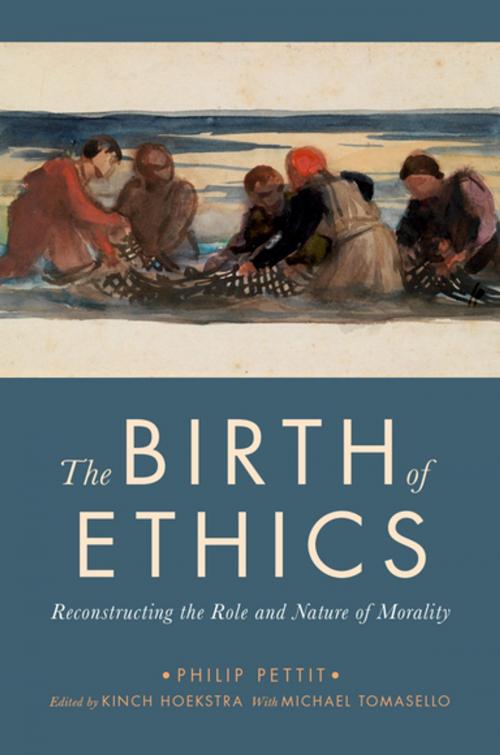The Birth of Ethics
Reconstructing the Role and Nature of Morality
Nonfiction, Reference & Language, Law, Jurisprudence, Religion & Spirituality, Philosophy, Political, Ethics & Moral Philosophy| Author: | Philip Pettit | ISBN: | 9780190904937 |
| Publisher: | Oxford University Press | Publication: | October 15, 2018 |
| Imprint: | Oxford University Press | Language: | English |
| Author: | Philip Pettit |
| ISBN: | 9780190904937 |
| Publisher: | Oxford University Press |
| Publication: | October 15, 2018 |
| Imprint: | Oxford University Press |
| Language: | English |
Imagine a human society, perhaps in pre-history, in which people were generally of a psychological kind with us, had the use of natural language to communicate with one another, but did not have any properly moral concepts in which to exhort one another to meet certain standards and to lodge related claims and complaints. According to The Birth of Ethics, the members of that society would have faced a set of pressures, and made a series of adjustments in response, sufficient to put them within reach of ethical concepts. Without any planning, they would have more or less inevitably evolved a way of using such concepts to articulate desirable patterns of behavior and to hold themselves and one another responsible to those standards. Sooner or later, they would have entered ethical space. While this central claim is developed as a thesis in conjectural history or genealogy, the aim of the exercise is philosophical. Assuming that it explains the emergence of concepts and practices that are more or less equivalent to ours, the story offers us an account of the nature and role of morality. It directs us to the function that ethics plays in human life and alerts us to the character in virtue of which it can serve that function. The emerging view of morality has implications for the standard range of questions in meta-ethics and moral psychology, and enables us to understand why there are divisions in normative ethics like that between consequentialist and Kantian approaches.
Imagine a human society, perhaps in pre-history, in which people were generally of a psychological kind with us, had the use of natural language to communicate with one another, but did not have any properly moral concepts in which to exhort one another to meet certain standards and to lodge related claims and complaints. According to The Birth of Ethics, the members of that society would have faced a set of pressures, and made a series of adjustments in response, sufficient to put them within reach of ethical concepts. Without any planning, they would have more or less inevitably evolved a way of using such concepts to articulate desirable patterns of behavior and to hold themselves and one another responsible to those standards. Sooner or later, they would have entered ethical space. While this central claim is developed as a thesis in conjectural history or genealogy, the aim of the exercise is philosophical. Assuming that it explains the emergence of concepts and practices that are more or less equivalent to ours, the story offers us an account of the nature and role of morality. It directs us to the function that ethics plays in human life and alerts us to the character in virtue of which it can serve that function. The emerging view of morality has implications for the standard range of questions in meta-ethics and moral psychology, and enables us to understand why there are divisions in normative ethics like that between consequentialist and Kantian approaches.















